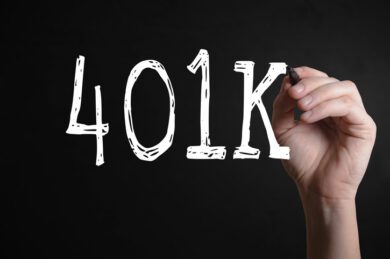 What would you say if I told you that most Americans have no understanding of how the most valuable thing they own works? Hopefully you would say you do. But, according to a 2019 study by Value Penguin the majority of you reading this would have to admit you don’t.
What would you say if I told you that most Americans have no understanding of how the most valuable thing they own works? Hopefully you would say you do. But, according to a 2019 study by Value Penguin the majority of you reading this would have to admit you don’t.
The study, which surveyed 2,000 Americans, asked its participants if they understood how their 401(k) worked. Only 37 percent responded yes, (and if I were guessing, some of those people were lying.) With market volatility likely to be right on the horizon, every American with a 401(k) should have a clear understanding of what it is, how it works, and be confident that it is invested in a way that makes the most sense for them.
A 2019 Charles Schwab 401(k) participant study provides even more insight into the mindset and behavior of those participating in 401(k) plans. According to their study, 44 percent of those enrolled in an employer 401(k) have never adjusted how they are invested and have simply allowed the plan’s default allocation to be used. And despite the fact that 95 percent of those same respondents acknowledge they would feel more confident with professional help, only 52 percent believe their 401(k) warrants financial advice.
I myself have had people tell me they know they need to be working with a financial advisor, but plan to wait until they actually retire. Frankly, this strategy is the equivalent of waiting until the batter is in the oven to look at the recipe card. In other words, by then the cake is already baked.
As you have probably heard before, time is the largest determining factor on how well the law of compound growth works for your investments. That is why nearly every financial advisor tells you investing early can be the most impactful thing you can do to insure your retirement goals are met. Probably, second and third is how much you invest and what you invest in.
If you played Candy Crush, or even worse hooky, when it was time for your annual 401(k) meeting at work, you may not even be aware that you have the ability to adjust how much you contribute from your paycheck into your 401(k) or how those funds are invested. At Stewardship Capital we offer our clients 401(k) management regardless of who their plan is with. Because we work with so many different employer plans we know generally how they are structured and what types of investment options are likely to be available.
For most, a variety of target funds are probably offered. These funds attempt to provide a diversified investment mix based solely on the “target” date of when the fund holder plans to retire. For example a Target 2035 fund would most likely be held by a person in their early 50’s hoping to retire around the year 2035. While the simplicity of being invested in a single position have made these funds popular, due to other factors such as poor performance, high fees and an inability to react to other market conditions, such as a global pandemics, these one size fits all funds may not make these the most suitable option for many investors.
That is why most 401(k)’s also offer a variety of other investment asset classes that you can choose to invest your money in. While the available funds very greatly from plan to plan, generally you will see things like large-cap mid-cap and small-cap funds, international funds, bond funds, growth & value funds etc. Having your account appropriately invested in a mix of these different options based on your personal risk tolerance, market conditions, and time horizon can all help to improve your overall performance and set you up for a better chance at success at retirement.
Since it’s impossible to work through all of the eccentricities of someone’s 401(k) plan in a newspaper article I would suggest you meet with your plan provider to receive a more detailed explanation of what your investment options are and how your funds are currently invested.
If you are interested in a free analysis of your current 401(k) account contact us at info@stewcap.com we would be happy to set up a short zoom meeting or phone call to provide to you our suggestions for how we think you should have your 401(k) invested based on your specific situation.
